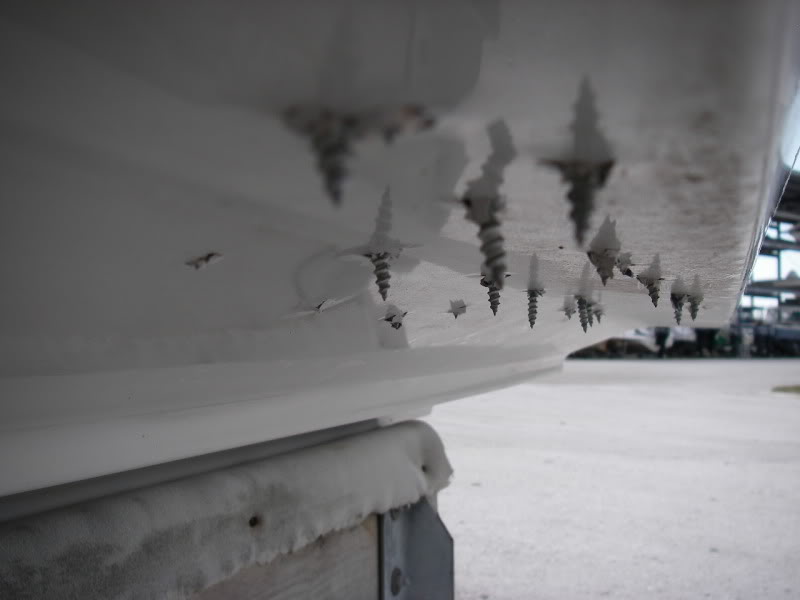I appreciate your concerns but don't sell me short on being capable because you really don't know me. I'll be fine.
I wasn't selling you short but rather pointing out that mechanical skills have limited application on pleasure boats. There ARE boats, like ex-Army tugs some some ex-industrial boats - with lots of mechanical systems. I would surgically remove my hand to keep it from signing a purchase agreement on a vessel like that, but it might be perfect for you.
scurvy-yard-dog said:
Regarding the Endeavor, I have a survey on the boat and there's a lot that the rest of you aren't aware of. I obtained a copy just so I could see what it's all about...
That's either a survey commissioned by the seller (which, given the general neglect of the boat, seems unlikely) or one by a would-be buyer who walked away. While I would certainly read a survey of a boat I was interested in, I (and some others on this forum) feel that I know as much or more about boats as any surveyor. The average survey is laughable - I have one from a boat I bought 35 years ago where he didn't even correctly identify the number of blades on the propeller. They generally do little more than tell you what safety gear is aboard (slightly better is to tell you what safety gear is missing). I would certainly perform an engine oil analysis, but I haven't commissioned a survey on any vessel I've purchased since that one 35 years ago.
The more boats you are on the more attuned your senses will be. That YachtWorld listing, for example, has only a handful of carefully chosen low-rez images of an indeterminate age. But one sniff of the boat will tell me in 3 seconds more about it's overall current condition.
Steve d'Antonio (who sometimes posts on this forum) had a column in the back of PassageMaker magazine with the theme "What's wrong with this photo?". There were usually multiple levels to an answer. The first level was to identify what was the MOST wrong with the picture. The second level was to figure out exactly the issue was (something broken, improperly installed, or with some other sign of distress). The third level was to figure out WHY it got that way. But the real point of the article was what needed to be done to keep something like that from recurring. It was usually something like an improper repair, an improper metal somewhere else, or a leak originating god knows where, or an crummy construction technique that was well hidden (e.g. a poor hull-to-deck joint).
I can't remember all of them, but I'm going to imagine one for illustration purposes - a picture of a large boat battery with a bulge. Being a mechanic you would quickly spot that, but the "answer" was not to swap out the battery but rather what set of conditions contributed to it being overcharged.
You do indeed appear to have a good attitude and perseverance which is great, because owning a boat is a never-ending series of challenges to be overcome. Fortunately there are lots of other boaters who will be willing to offer up an expert opinion. Your first task, then, may simply be learning to identify what advice is truly accurate and useful.





